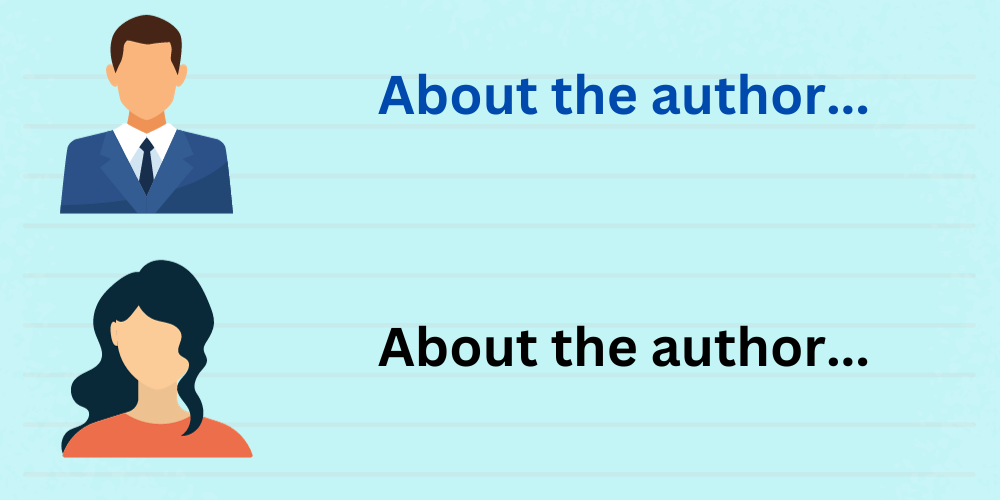Should you attribute articles published by your company to a particular author or internal contributor?
It can be challenging to do this. Not everyone wants to have a public presence online. Articles are often prepared by a content marketing agency or written by professional article writers on behalf of internal subject matter experts. Employees with topic expertise, even at executive level, come and go. But the benefits of attributing articles to subject matter experts (internal or external) might outweigh those challenges. It’s particularly important if your goal is to produce thought leadership level content.
Let’s look at Google’s ‘E-E-A-T’ factors attached to its Search Quality Rating Program, what that means for producing content, and its potential impact on website page rankings and SEO.
What exactly is E-E-A-T?
It’s no surprise that with AI tools making it easier than ever to create content, Google and other search engines must work harder than ever to distinguish trustworthy sources and quality content.
Google’s Search Quality Rating Program is part of that effort, and it involves human ‘search quality raters’ rating web pages according to detailed guidelines provided by Google.
A key section of the Guidelines refers to rating factors ‘E-E-A-T’, which stands for:
- Experience
- Expertise
- Authoritativeness
- Trustworthiness
The ‘E’ for Experience was added in a December 2022 update to the Guidelines.
In terms of how they impact SEO, it’s typically vague, as Google doesn’t share all the details on ranking signals. However, an article on the Google Search Central Blog mentions:
“…these guidelines are what are used by our search raters to help evaluate the performance of our various search ranking systems, and they don’t directly influence ranking. They can also be useful to creators seeking to understand how to self-assess their own content to be successful in Google Search.”
The influence might not be direct, but the message is clear enough: if you demonstrate E-E-A-T in your content, you’re likely to be more successful in Google Search.
Let’s now take a closer look at how E-E-A-T is assessed.

How is E-E-A-T assessed?
Here’s what the Google Quality Rater Guidelines say raters should broadly consider in assessing pages for each of these elements.
Experience: “Consider the extent to which the content creator has the necessary first-hand or life experience for the topic.”
Expertise: “Consider the extent to which the content creator has the necessary knowledge or skill for the topic.”
Authoritativeness: “Consider the extent to which the content creator or the website is known as a go-to source for the topic.”
Trustworthiness: “Consider the extent to which the page is accurate, honest, safe and reliable.”
The Guidelines drill down into examples to demonstrate that there are a variety of ways for websites to demonstrate these qualities, and they vary across business types. (There’s far too much detail to cover here, but if you’d like to dive in, you’ll find the 176-page Guidelines here.)
The value of author attribution
Author attribution has the potential to contribute to demonstrating each of the E-E-A-T factors:
- Experience: An author may be able to provide real life examples in content, which indicates experience, or might have an occupation or role that implies relevant experience. Having published content on a topic over time could signal depth of experience.
- Expertise: An author bio, along with social media profiles could mention relevant qualifications and expertise.
- Authoritativeness: if the content writer (and/or company website) has published multiple articles on related topics, this could signal topic authority for the writer and website.
- Trustworthiness: Being prepared to identify people behind a business contributes to trust. Many businesses do this on an ‘About’ or ‘Team’ page, but having one or more topic experts attributed to quality content on your blog is another good way to contribute to the trust factor. When you’re able to identify the author, you’re better able to assess the trust level of the content.
Does every article need author attribution? Not necessarily. It is possible to demonstrate experience and expertise at the company level, even for thought leadership articles. However, this is a lot easier for a large organisation or well-known brand that has already established a strong online presence, and would be perceived as an authority on topics related to their sector or niche. For a small business or start-up, there’s often nowhere to hang the hat of expertise and experience but on the founder’s head.

Other content factors – accuracy and sources
Author attribution alone won’t win the gold star. The content produced should be of the highest quality – useful, engaging, accurate, and with authority sources cited where appropriate. Content that’s devoid of trustworthy, factual information or that gets lost in the sea of sameness won’t help to position either the writer or the company as a reliable source of expertise. If you can’t produce content at this level in-house, seek out a competent writing agency.
(If your company blog is many years old and hasn’t been properly audited to remove or update low quality content, consider taking advantage of our blog management service to update and maintain the quality level for you, with our combination service that includes a rolling content audit and blog writing services.)
Build your evidence of E-E-A-T
Creating content that builds evidence of experience, expertise, authority and trustworthiness is likely to serve you increasingly well in search visibility as the volume of content online explodes with the indiscriminate use of AI content tools. Here are some options to consider for building evidence of E-E-A-T.
- Review your website ‘About’ areas. Identifying key team members and providing details of their credentials may contribute evidence towards trustworthiness, experience and expertise.
- Identify your expert authors and thought leaders and highlight their qualifications and experience. A common way of doing this is with author bio boxes.
- If you don’t have a thought leadership content program, consider establishing one. Consider whether the best approach would be to have your experts draft the content, or to have your content writers interview the topic experts by phone and craft the content. Identify internal topic experts and other stakeholders who would need to collaborate to make the program a success, and gauge the appetite for your idea!
- Ensure all content is reviewed by a professional content editor prior to publication to check for accuracy, correct citing of sources, overall quality and E-E-A-T factors.
- Cite and link to recognised authority websites related to facts or data mentioned in articles. Avoid second-hand sources where possible – if you’re referring to research or report findings, it’s better to locate and link to the original publication, that to link to a news article that merely mentions the findings.
- Create a process to help you identify innovation in your sector, and within your company. This can help you discover timely cutting-edge topics for your thought leadership content calendar. Similarly, checking in with topic experts and even your sales managers can help you identify new concepts, emerging challenges, or new questions that could be addressed with content that’s ahead of the curve.
- Leverage the credibility and authority of others. Look for publication opportunities for your internal topic experts on third party authority websites such as industry associations, niche news portals, big brand supplier blogs or well-known organisations related to topics that align with your own.
Using external writers
The priorities of company executives and other internal topic experts typically don’t include writing articles for the company blog. This doesn’t mean you can’t tap into their expertise and insights to prepare content. Professional writers can be briefed on the content required, and interview your topic experts to glean their insights – whether you’re engaging content writing services or using in-house writers. (Where you intend to attribute content to a topic expert rather than the writer, it should be made clear to the writer on engagement that they are ghost writing for your topic expert, and won’t be the attributed author of the content.)
Another option is to engage external contributors who are topic experts and writers. For example, an experienced technology journalist could make an excellent contributing author for an IT or software-related website. A retired horticulturalist who writes well could partner with a nursery or gardening-related website to write articles about plant care. In these examples, the company would be attributing authorship to the writer, and leveraging their expertise or credentials.

How will author attribution affect SEO?
It’s impossible to know exactly how Google’s ranking signals work in relation to the E-E-A-T qualities, or to predict how author attribution (or the lack of it) will impact SEO. What can reasonably be predicted is that failing to demonstrate E-E-A-T as well as your competitors is likely to disadvantage you in some way in the search engine results!
If you’re planning to produce more content that demonstrates your expertise in 2024, the team at Article Writers Australia would love to help. Contact us soon to discuss your plans.
Article Writers Australia is a Sydney based agency that provides a range of content writing services to business clients.
Leonie Seysan is the Director of Article Writers Australia, and manages the team of professional writers and editors. She holds a Bachelor of Communications Degree (Media Studies) and has been writing professionally for over 15 years. Leonie is also the podcast host of "Content with Humans" and author of "Turning Insight to Influence: A Guide to Building a Thought Leadership Program".





